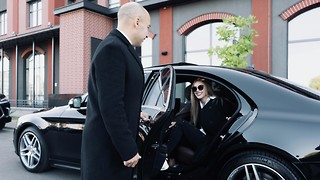The Decline and Fall of British TV
India Ross on Downton, EastEnders and falling standards on the small screen

The thing is, people will watch anything.
When the slack-jawed British populus hit the couch, Stella in hand, curry in lap, what’s actually on the box is no more than academic. The Youtube generation seek instant gratification with minimal emotional investment; a parade of cheap laughs and familiar faces.
Such is the extent of the pathological defeatism in British TV, we are losing sight of what a good show even looks like. With Downton Abbey hailed as the ‘most critically acclaimed television show of 2011’, one is forced to concede that standards are in dangerous decline.
It is all a question of expectation. The British public are the captive recipients of whatever the BBC and co choose to feed to them; and without selection pressure from other pioneering networks, an apathetic equilibrium is reached in which expectations are so low that no one can ever be disappointed. Broadcasters are embarking on an insidious moving of the goalposts, cashing in on the low-expectation void left by The X Factor et al. Stagnant airtime is filled with play-it-safe, low-budget productions with irritating, recycled actors. The rise and rise of the ludicrous Benedict Cumberbatch leaves me all but speechless.
It is with regret that I watch David Lynch’s incomparable Twin Peaks. An artist and a visionary, Lynch pushed the medium of television into transcendence; no longer a stop-gap between news bulletins, it was an artistic vehicle to rival the cinema. The most accessible of all artforms, the small screen could erode cultural divisions in a way that non-mainstream cinema, in all its exclusivity, never did.

The US once again leaves us impotent in its wake. While there have arguably been few successors to quite match Twin Peaks, current American television reeks of ambition. The growing array of dazzling productions, from Mad Men to Breaking Bad, is a showcase of stellar cinematography and inimitable character actors sourced from obscurity. There is of course a parallel supply of junk food entertainment (we’ve all dabbled in 90210), but it is recognised as such, never serving as a substitute for the real thing.
Even in comedy, the British have been usurped. Former triumphs like Monty Python and Yes, Minister have long since been archived, and in the post-Seinfeld era we have been losing ground year-on-year. Britain wasn’t ready for The Office, a rare gem in an otherwise banal decade, which was promptly exported across the Atlantic when its potential was recognised, going on to spawn an entire movement in situational comedy, from the under-appreciated Arrested Development to the wonderful Modern Family nearly a decade later.
The obvious retort is that limited budgets will always constrain British TV. A fair point, (apparently Jon Hamm is currently racking up $250,000 per episode of Mad Men) but considering that the BBC’s annual expenditure on EastEnders is £30m, perhaps a re-think is in order. After all, inspiration costs nothing.
 News / Uni offers students £55k in payouts31 October 2025
News / Uni offers students £55k in payouts31 October 2025 News / Uni error forces deeper spending cuts31 October 2025
News / Uni error forces deeper spending cuts31 October 2025 News / Students allowed to use AI, says new uni guidance31 October 2025
News / Students allowed to use AI, says new uni guidance31 October 2025 News / Students launch women’s society excluding trans women31 October 2025
News / Students launch women’s society excluding trans women31 October 2025 News / College rowing captains narrowly vote to exclude trans women31 October 2025
News / College rowing captains narrowly vote to exclude trans women31 October 2025









